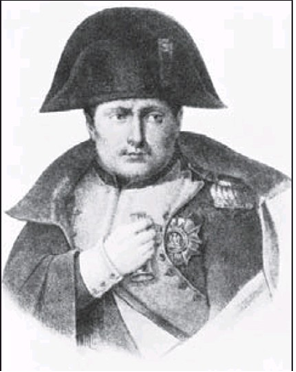Napolean Bonaparte

Napolean Bonaparte was a talented soldier whose ambition led him to become empire of France” but his invasion of Russia proved to be his downfall
NAPOLEON BUONAPARTE was born on August 15, 1769, on the French island of Corsica, off the coast of Italy. He changed his name to Bonaparte and by 1785, at age 16; Napoleon was a second lieutenant in the French army.
In 1789, the French Revolution a bloody rebellion against Frances royal family erupted, and Napoleon returned to Corsica to fight for its independence.
Napoleon distinguished himself fighting on behalf of the Revolution, quickly rising through the military ranks.
In 1793, he saved the French city of Toulon from British troops fighting for the French royalists. His marriage in 1796 to Josephine de Beauharnais is one of historys great romances.
In 1798, Egypt fell to Napoleon, but his troops were defeated in Syria, and became trapped when Napoleons naval fleet was wiped out at the Battle of the Nile.
In Europe, however, conquered nations were organizing against Napoleon, and the royalists were attempting another uprising.
In 1799, Napoleon returned to France without his troops, staging a government takeover that made him the military dictator of France.
On December 2, 1804, Napoleon crowned himself Emperor, and his wife Empress, of France. He crowned himself the King of Italy the following year.
Napoleon ultimately conquered, captured or forced much of Europe into treaties favorable to France. The nations of Europe would try to rise against him, as would the royalists determined to restore the monarchy, but by 1809, a treaty between Napoleon and the Russian Tsar Alexander I had divided all of Europe between Russia and France.
Napoleon could not defeat Britain or the British Navy, which controlled the seas. So, Napoleon ordered all of Europe to boycott Britain.
But the tide was beginning to turn against Napoleon. With British help, Spain drove out the French.
Then, in 1810, in a failed attempt to establish a lasting peace with Austria, Napoleons marriage to Josephine was annulled so he could marry the Austrian Emperors daughter.
Russia refused to cooperate with Napoleons British boycott, prompting Napoleon to disastrously invade Russia in 1812. Napoleons defeat emboldened his enemies. A force of British, Russian, Prussian and Austrian troops occupied Paris in 1814, the French monarchy was restored, and Napoleon was exiled to the Italian island of Elba off the coast of Italy.
Napoleon staged one more comeback, escaping Elba, taking command of Frances welcoming army, and marching on Paris. He governed for 100 days before his final defeat, by the British, at the Battle of Waterloo on June 18, 1815.
Napoleon was exiled again, this time to the British island of Saint Helena. He died on May 5, 1821.
New York Post, December 2, 2010

